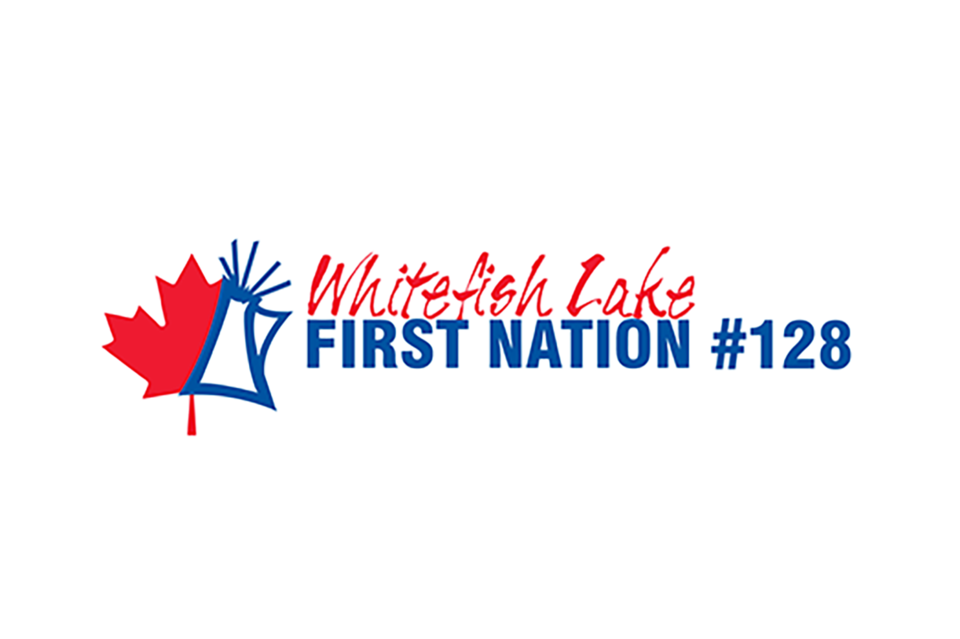WHITEFISH LAKE - In what is being described as a historic event, members of Whitefish Lake First Nation #128 (Goodfish Lake) will vote in a referendum later this month to enact their own election bylaws.
In 1955, Saddle Lake and Whitefish Lake leaderships joined together to develop election bylaws. The election rules take up less than a page of space and have remained unchanged for almost 70 years. However, the time has now come to update them, according to Rennie Houle, spokesperson for the Whitefish Lake working group charged with spearheading the review.
“There have always been issues with the outdated bylaws. Although they are customary, we continually get challenges and appeals at every election,” for band council, Houle explained. He said increasing concerns are being expressed by band members that the bylaws “don’t hold any water because they are outdated, and they are discriminatory.”
Describing them as “very vague,” Houle said this continues to be an issue each election, causing appeals to be launched, sometimes resulting in court action. This lack of clarity around the rules “causes disharmony and it causes frustration amongst the Nation.”
Court challenges take the control from the band members in determining their own leadership, he said.
Originally drawn up by both Saddle Lake and Whitefish Lake leaderships, the election changes are only being undertaken by Whitefish Lake at this time, he said. Saddle Lake has signed a band council resolution giving Whitefish Lake the authority to proceed with developing its own bylaws.
“We’ve been doing this for the past year. The chief and council developed a working group, and we started working on the bylaws.”
During the process, Houle said the group not only reviewed the pros and cons of the existing document but also looked at the election bylaws of other First Nations throughout Canada.
“We’ve done our homework.”
Six community engagement sessions with band members, three on reserve and three off reserve in Edmonton were part of the process, along with the group collecting 600 completed membership surveys. Engagement sessions were held in the city due to the “heavy population” of Whitefish band members living there.
Houle said the information received during the engagement process has been vital in allowing the working group to continually revise and “tweak” the bylaws to reflect the views of membership today.
He said the final proposed document has been widely circulated and now needs band approval to officially enact it.
That final document approval is being taking to the Whitefish Lake membership for a referendum vote Feb. 23 in Edmonton at the DoubleTree Hotel and Feb. 24 at Whitefish Lake Community Hall. Voting will take place between 8 a.m. to 8 p.m. Voters must be 21 years of age and over and be a registered member of Whitefish Lake.
“It is a historic event for Whitefish Lake First Nation people because this will be the first time they will be determining making their own bylaws. They will be saying, ‘This is the way we want it and we accept what we have developed.’”
One of the more significant updates to the bylaws will be allowing those living in common-law relationships to run for election. The 1955 document does not permit it.
“If you were living common-law, you weren’t allowed to become a leader. In today’s Charter of Rights and Freedoms, that’s discriminatory,” Houle said.
Another significant change relates to those convicted of a Criminal Code offense not being able to seek election under the existing rules. The new bylaws allow for an appeals committee whereby, depending on the type of conviction, can permit someone to run. Houle gave the example of someone who may have committed theft in their youth, now 40 years later wanting to do something good for their community. “They would be looked at by the appeals committee.” However, he stressed those convicted of serious offenses including murder would still not be permitted to run under the new rules.
In 1985, Bill C-31 reinstated Indigenous status to women who had lost their status by marrying men without status. It also enabled their children of those marriages to have status. Houle said the new election bylaws will permit these individuals to now vote, where previously they were not allowed.
“They weren’t allowed to vote even though they regained their status, and the government recognized them as band members, we still didn’t allow them to vote,” he said. “So, that was discriminatory.”
Houle said it is imperative that band members take the time to vote in the upcoming referendum “to show the government that we want to develop our own bylaws. We want to determine our own leadership. It shows we are capable of doing our own planning, our own implementation and our own processes. It shouldn’t be the courts doing it; it shouldn’t be Canada doing it.”
Houle estimated about 2,000 band members are eligible to cast a vote in the referendum.



